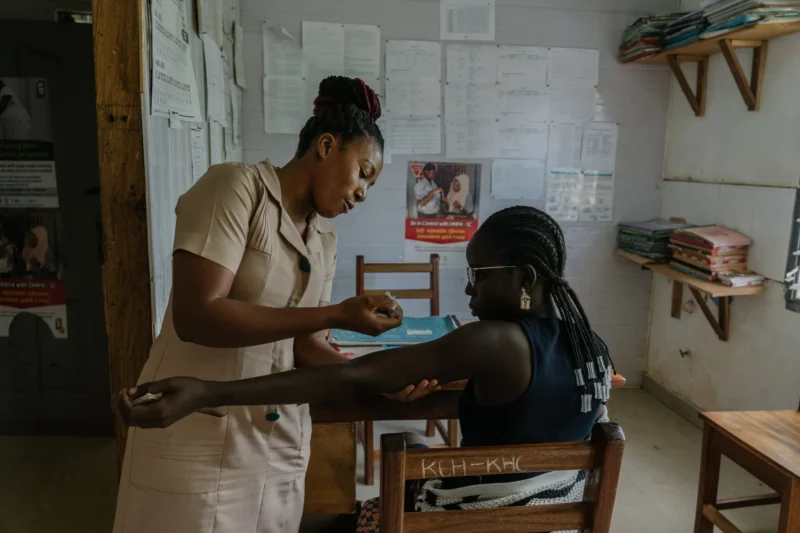More Women in Africa Are Using Long-Acting Contraception, Changing Lives
Share
Explore Our Galleries
Breaking News!
Today's news and culture by Black and other reporters in the Black and mainstream media.
Ways to Support ABHM?
By Stephanie Nolen, The New York Times
Methods such as hormonal implants and injections are reaching remote areas, providing more discretion and autonomy.

On a busy day at the Kwapong Health Centre in rural Ghana, Beatrice Nyamekye put contraceptive implants into the arms of a half-dozen women, and gave eight or nine more a three-month hormonal injection to prevent pregnancy. A few sought condoms or birth control pills, but most wanted something longer lasting.
“They like the implants and injections best of all,” said Ms. Nyamekye, a community health nurse. “It frees them from worry, and it is private. They don’t have to even discuss it with a husband or a partner.”
The bustle at the Kwapong clinic is echoed all over Ghana, and across much of sub-Saharan Africa, where women have the world’s lowest rate of access to contraception: Just 26 percent of women of reproductive age in the region are using a modern contraceptive method — something other than the rhythm or withdrawal methods — according to the United Nations Population Fund, known as UNFPA, which works on reproductive and maternal health.
But that is changing as more women have been able to get methods that give them a fast, affordable and discreet boost of reproductive autonomy. Over the past decade, the number of women in the region using modern contraception has nearly doubled to 66 million.
“We’ve made progress, and it’s growing: You’re going to see huge numbers of women gaining access in the near future,” said Esi Asare Prah, who manages advocacy for the Ghana office of MSI, a reproductive health nonprofit.
Find more Breaking News here.
Explore our virtual exhibit galleries here.









Comments Are Welcome
Note: We moderate submissions in order to create a space for meaningful dialogue, a space where museum visitors – adults and youth –– can exchange informed, thoughtful, and relevant comments that add value to our exhibits.
Racial slurs, personal attacks, obscenity, profanity, and SHOUTING do not meet the above standard. Such comments are posted in the exhibit Hateful Speech. Commercial promotions, impersonations, and incoherent comments likewise fail to meet our goals, so will not be posted. Submissions longer than 120 words will be shortened.
See our full Comments Policy here.